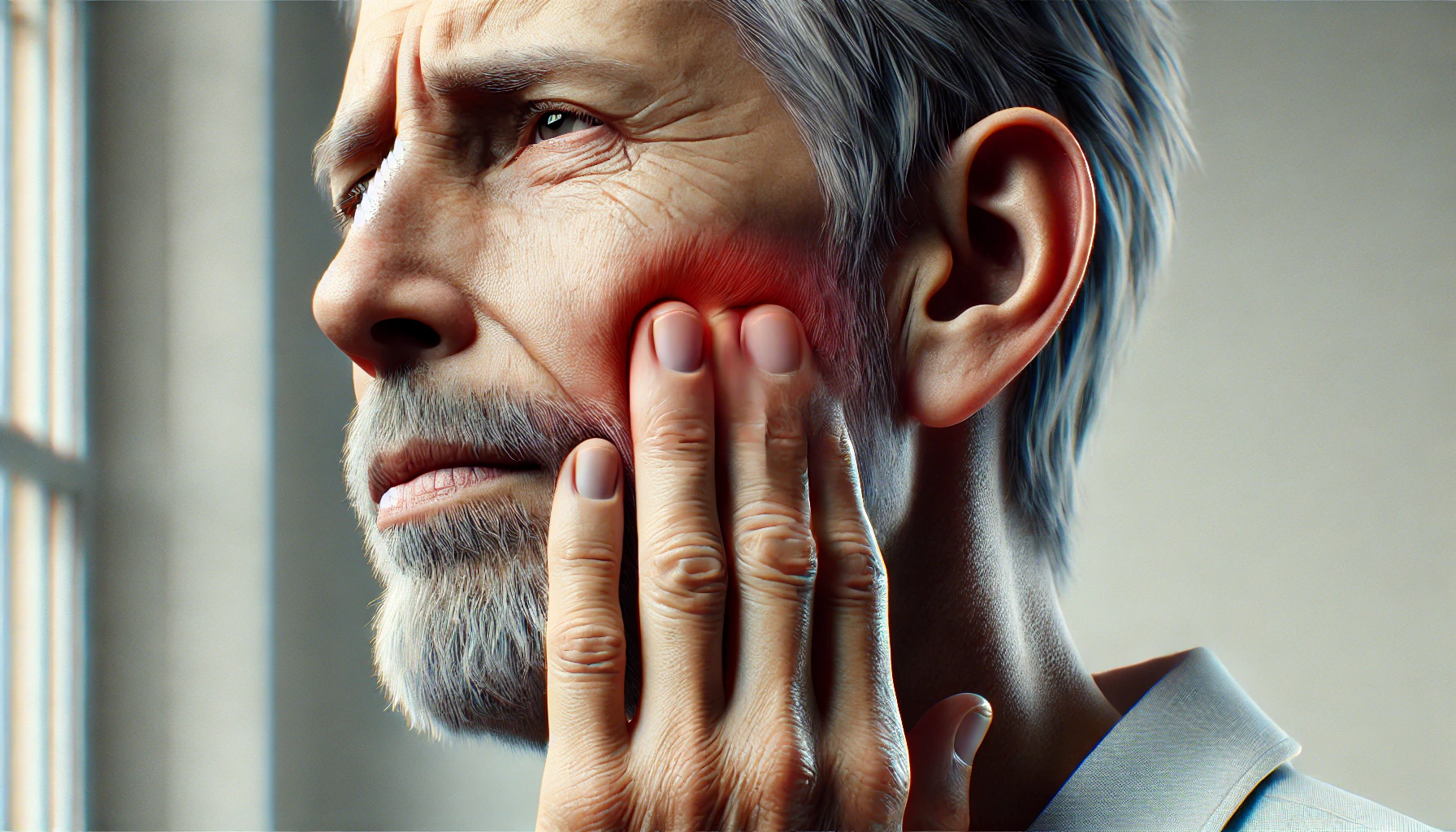This post was written with Consensus AI Academic Search Engine – please read our Disclaimer at the end of this article. Jaw pain can be a debilitating condition that affects daily activities such as eating and speaking. Understanding the potential causes of jaw pain is crucial for seeking appropriate treatment. Here are six possible causes of jaw pain based on recent research findings.
1. Temporomandibular Disorders (TMD)
- Masticatory Myofascial Pain (MMP): One of the most common causes of chronic orofacial pain in patients with temporomandibular disorders. It involves pain in the muscles that control jaw movement and can lead to limited jaw opening and discomfort1.
2. Muscle Overuse or Strain
- Repetitive Muscle Contraction: Chronic jaw pain can result from repetitive tetanic contraction of the masticatory muscles, which can lead to muscle strain and pain1.
3. Stress and Bruxism
- Teeth Grinding (Bruxism): Stress can lead to bruxism, where individuals grind or clench their teeth, often during sleep. This can cause significant strain on the jaw muscles and joints, leading to pain and discomfort.
4. Arthritis
- Joint Inflammation: Arthritis, particularly osteoarthritis or rheumatoid arthritis, can affect the temporomandibular joint (TMJ), leading to pain, swelling, and reduced mobility in the jaw.
5. Dental Issues
- Tooth Problems: Issues such as cavities, abscesses, or misaligned teeth can cause referred pain to the jaw. Dental infections or impacted wisdom teeth can also contribute to jaw pain.
6. Alcohol Consumption
- Alcohol’s Analgesic Effects: While alcohol can provide temporary pain relief, it does not address the underlying cause of chronic jaw pain. Individuals with chronic jaw pain may experience lower pain thresholds and greater pain intensity, and using alcohol for pain relief can lead to hazardous drinking patterns2.
Conclusion
Jaw pain can arise from various causes, including temporomandibular disorders, muscle overuse, stress-related bruxism, arthritis, dental issues, and even alcohol consumption. Identifying the specific cause of jaw pain is essential for effective treatment and management. If you experience persistent jaw pain, it is advisable to consult a healthcare professional for a thorough evaluation and appropriate intervention.
Disclaimer
The content presented in this blog is generated by Consensus, an AI-powered academic search engine, and is based on publicly available scientific literature. While every effort is made to provide accurate, up-to-date, and well-researched information, the content is intended for informational and educational purposes only. It does not constitute medical advice, diagnosis, or treatment. Always consult a qualified healthcare professional before making any decisions regarding medical conditions, treatments, or medications. The AI system’s analysis may not cover all perspectives, emerging research, or individual cases, and it is not a substitute for professional expertise. Neither the blog publisher nor the developers of the AI-powered search engine are responsible for any actions taken based on the information provided in this content. Use of this information is at your own risk. Citations to the original scientific studies are included for reference, but these studies should be reviewed in full and interpreted with the guidance of a healthcare or research professional.
If you are experiencing a medical emergency, please seek immediate attention from a healthcare provider.
